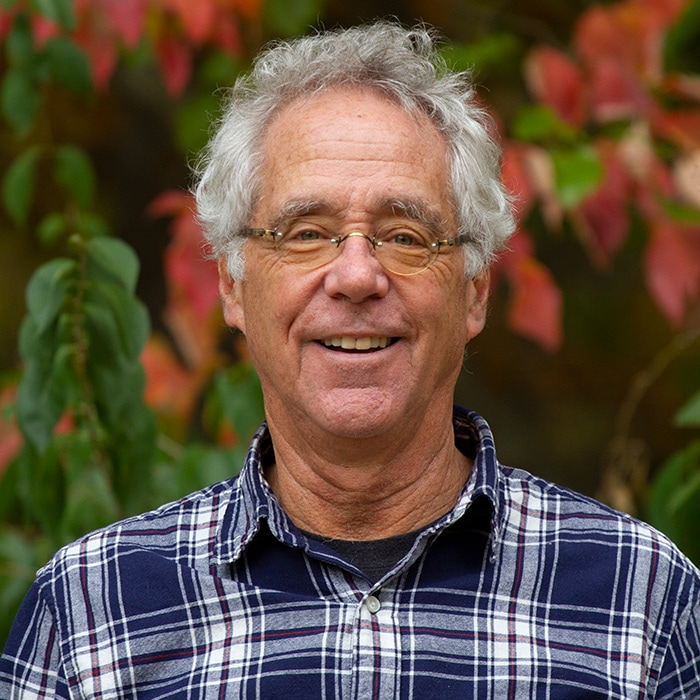John Irving
Recently, a television news magazine devoted time to the phenomenon of people who remember in detail every moment of every day of their lengthening lives.* The gaggle of medical researchers, psychological probers, and curiosity seekers circling around these woebegone souls was enough to make me thankful, perhaps for the first time, that there are some things I can forget. But I am more thankful for the things I remember, and for the honor we are able to grant others and ourselves when we remember, if only for a time, what we have been through, alone and together.
We were given this year, finally, the full autobiography of the great Mark Twain. Is it possible for someone so well-known and so thoroughly woven into the fabric of our culture to be underappreciated? Reading this book makes me think so. I recall that Twain was the one who framed the inarguable truth, “History doesn’t repeat itself, but it does rhyme.” And this is why, on this morning of this waning year, it is apt that we reflect on what we have seen and what it might mean.
Each year-end, a news magazine we all know names a person of the year. The selection must be a harrowing task, and we can hope that to the one so named, the designation, however flattering, brings at least a flicker of humility, if not a sense of the vast dice roll of fate. A fun parlor game is to play Where Are They Now with the list of past winners, and, even more fun, with the fleeting social phenomena that undergirded the award. In 2002, “The Whistleblowers” were ascendant. Since then, we haven’t been able to lock them up fast enough, be it in the name of national security, trade secrets, or just bad taste. Think what you will of WikiLeaks’ Julian Assange - he exemplifies another inarguable truth, or, actually, a pair of them: first, in our digital age, the rate of change is so fast that social revolutions that once took decades to unfold are now measured in months. And, second, that our social order and the legal regimens we invent to maintain it are inadequate in times of rapid social transformation. To embroider the point, consider that in September, President Obama awarded a Medal of Honor to Chief Mast Sergeant Richard Etchberger for heroism in Laos more than forty years ago, a mission kept secret for - of course - national-security reasons.
Our collective myopia and mortal follies are scarcely news. But can you look back on the passing year without recognizing the difference between what is past, or passing, or to come, and the strength of things that remain, that endure? First among those things, of course, is the power of nature and its stubborn refusal to yield to us. Floods (Pakistan) and volcanoes (Iceland) and earthquakes (Haiti) . . . O my! We don’t yet know, and may not for decades, what we have done to the Gulf of Mexico, but it is in our unknowing, I think, that we recognize the global and millennial drama of history, and recognize, too, our small role in it.
Here in northwestern Ohio, a tornado nearly annihilated a township, leaving us to come to terms with destruction and loss and grief. And soon we see before us, like a phoenix rising from flames, the trustworthy human will to endure, to prevail, to begin again. When we rebuild a leveled school, when we work together to preserve a community’s crucial core, we are saying something indelible about our own lives and what they mean. And we are paying a form of homage to those who came before, those whom we’ve lost, those whom we remember.
These tributes to the departed come in many forms. As a year comes to its mixed-blessing close, part of our ritual of remembering entails thinking of those we lost. We do this as a society, watching as our magazines and televisions share their moving montages of politicians, scientists, artists, and the infamous who are no longer with us. And we do this in our own lives, thinking of those who are absent, for whatever reason - death or forbidding distance. Our act of remembering is one way we resist loss and the pain that comes with it. I suspect we all have our own photo montages that we broadcast within our minds and share with those dear to us. We keep these mental scrapbooks because we know the immense power of memory and its ability to imbue with continuing life the people and places that might otherwise be gone. For William Faulkner was surely right in saying that the past isn’t dead; it isn’t even past.
As this year comes to a close, amidst the clamor of war abroad and the babble of reflexive dispute at home, and with the promise of human ingenuity arcing gracefully above it all, we can take comfort in knowing that each of our lives is animated by Faulkner’s truth: our pasts are present in all we do for the future.
We at Vintage Aerial share with you our gratitude for the chance to live and now recall 2010, and our excitement for the year to come.
*If you’re in a reflective mood, reflect for a moment on the oddity of those three words placed together in a single phrase, and what sense the first baby of the next century will make of them


